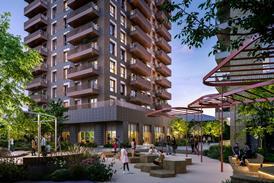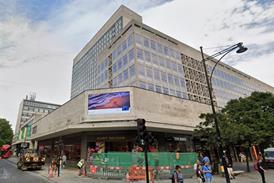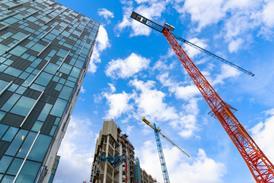- Home
 Planning at the edges: What awkward urban sites can teach us about better design
Planning at the edges: What awkward urban sites can teach us about better design HTA gets green light for final phase of 1,300 scheme in west London
HTA gets green light for final phase of 1,300 scheme in west London KPF to submit planning application for Oxford Circus tower revamp this autumn
KPF to submit planning application for Oxford Circus tower revamp this autumn BSR boss blames lack of design expertise for gateway 2 delays as he admits ‘underestimating’ challenge of new regime for industry
BSR boss blames lack of design expertise for gateway 2 delays as he admits ‘underestimating’ challenge of new regime for industry
- Intelligence for Architects
- Subscribe
- Jobs
- Events

2025 events calendar Explore now 
Keep up to date
Find out more
- Programmes
- CPD
- More from navigation items
Cladding safety is ‘national emergency’, says Labour

RIBA says Bolton blaze demonstrates Grenfell Tower lessons have yet to be learnt
The Labour Party has pledged to treat the safety of cladding on high-rise residential buildings as a “national emergency” if it forms a government after next month’s general election.
Speaking after the weekend’s blaze at student accommodation in Bolton, shadow housing secretary John Healey said a Labour government would implement a range of measures to boost building safety starting from day one.
Included would be giving local authorities the power to take over privately owned blocks whose owners have so far failed to replace aluminium composite material (ACM) cladding of the type that spread 2017’s fatal fire at Grenfell Tower.
…
This content is available to registered users | Already registered?Login here
You are not currently logged in.
To continue reading this story, sign up for free guest access
Existing Subscriber? LOGIN
REGISTER for free access on selected stories and sign up for email alerts. You get:
- Up to the minute architecture news from around the UK
- Breaking, daily and weekly e-newsletters
Subscribe to Building Design and you will benefit from:

- Unlimited news
- Reviews of the latest buildings from all corners of the world
- Technical studies
- Full access to all our online archives
- PLUS you will receive a digital copy of WA100 worth over £45
Subscribe now for unlimited access.


